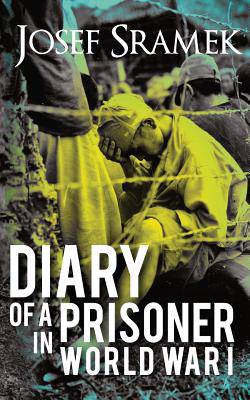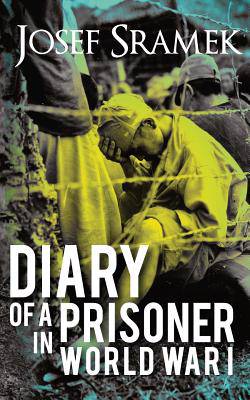
- Afhalen na 1 uur in een winkel met voorraad
- Gratis thuislevering in België vanaf € 30
- Ruim aanbod met 7 miljoen producten
- Afhalen na 1 uur in een winkel met voorraad
- Gratis thuislevering in België vanaf € 30
- Ruim aanbod met 7 miljoen producten
Zoeken
€ 12,45
+ 24 punten
Omschrijving
An authentic diary of Josef Sramek, a Czech soldier drafted to the Hungaro-Austrian army to fight from the beginning of World War 1. An ordinary Czech boy, twenty-two-year-old Josef Sramek was working at Kohn & Kornfeld, a textile distribution company, before he was forced to go to war in 1914. Having no respect for individual, national, or ethnic opinions, the Austrian military drafted thousands of unwilling youths like Josef, a process that wasn't too different from an unjust prison system. He was captured by Serbs. He survived and describes a series of death marches through Serbia and Albania. Throughout his ordeal, Josef suffered from cold, caught terrible diseases, and witnessed soldiers and civilians turning into either brutal predators or helpless prey. He was confined in a concentration camp at the italian island of Asinara which comprises an important part of his story. Later he was transfered to a more humanly captivity in France where his diary ends. Hopefully this compelling reminder of what really happened will make many realize the futility of war and also serve as a tribute to all the innocent victims that died so needlessly. In Diary of a Prisoner in World War I, Tomas Svoboda presents every record his grandfather, Josef Srámek, kept from the time he joined the army and was subsequently captured by the enemy, to the death marches and concentration camps he entered in Serbia, Albania, Italy, and France before finally returning home to resume his life. "Clarion Foreword Reviews" have given the book four stars and commented: "Srámek's diary is both informative and eye-opening. His grandson has done a masterful job putting it into a format accessible to a broad audience." and continue "... is a mustread for any student or aficionado of twentieth-century history. No historian could have written a more poignant tale."
Specificaties
Betrokkenen
- Auteur(s):
- Uitgeverij:
Inhoud
- Aantal bladzijden:
- 108
- Taal:
- Engels
Eigenschappen
- Productcode (EAN):
- 9781479126811
- Verschijningsdatum:
- 6/09/2012
- Uitvoering:
- Paperback
- Formaat:
- Trade paperback (VS)
- Afmetingen:
- 127 mm x 203 mm
- Gewicht:
- 122 g

Alleen bij Standaard Boekhandel
+ 24 punten op je klantenkaart van Standaard Boekhandel
Beoordelingen
We publiceren alleen reviews die voldoen aan de voorwaarden voor reviews. Bekijk onze voorwaarden voor reviews.











